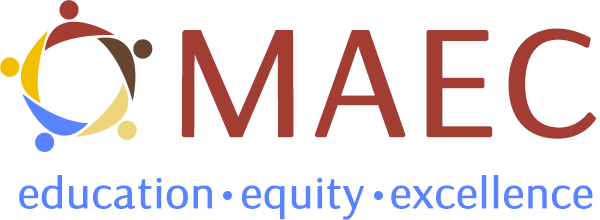Practitioner’s Perspective – Equitable Leadership for Superintendents (Daryl Williams)

MAEC’s Dr. Daryl Williams reflects on the need for equity-centered leadership and the three necessary components for working toward equity in a school district.
Tell us about the importance of providing diversity, equity, and inclusion training for superintendents and district leaders.
Many superintendents are being called upon to create diversity, equity, and inclusion frameworks in their districts, but few are prepared to lead this work. Part of that has to do with the fact that there’s very little training to build superintendents’ capacity around developing equitable districts. In many cases, those who lead the charge for equity work are staff at a lower level who don’t have the decision-making power or influence to create systemic change. The superintendent needs to be the primary voice in promoting for an equitable school community, because their voice resonates within schools and across the community. When that voice isn’t heard consistently from the superintendent level, the charge for equity gets diluted. Superintendents need training to understand their role in pushing for change of policy, practices, and beliefs in their district.
What are the characteristics of an equity-centered leader?
An equity-centered leader is one who is reflective of his or her own biases. Everyone has beliefs and biases that build on their lived experiences, and it’s important to reflect and be honest in order to recognize our own shortcomings. An equity-centered leader also has the skillset to influence change at the policy level and in practices, and lead courageous conversations about beliefs and attitudes.
I want to note that I haven’t ascribed to the term of an “anti-racist” leader. In my doctoral work, I focused on implicit and explicit racial and equity belief systems of superintendents – not who was racist and who was anti-racist. Beliefs don’t necessarily make a person racist, but there are practices that do.
The webinar focuses on three areas: collaborating with school boards, centering student voice, and prioritizing a diversified educator workforce. Why are those three areas rising to the top?
These three areas are all necessary components for working toward equity in a school district. I’ll address them one at a time:
- Collaborating with school boards: Boards set policy, and superintendents implement policy. If the school board and superintendent are not in lock sync with an equity, diversity, and inclusion plan, then not much is going to happen. Superintendents need to view themselves as advocates for policy change in order to influence policy in their district. We want to open up that conversation for superintendents to explore the challenges they face in their school board partnerships.
- Centering student voice: Many conversations about education exclude children as influencers of change. It’s critical for superintendents to leverage the voices of young people in the conversation around how they are impacted by the inequities in their schools. We hope this webinar helps turn that lightbulb on for many superintendents.
- Prioritizing a diversified educator workforce: Our districts are struggling with hiring, recruiting, and retaining educator and leader workforces. The disproportionality between the staff of color and students of color is a huge issue across districts in the U.S. You have districts that are becoming more and more diverse, yet the educator workforce is not. We want to have this conversation with superintendents about their challenges in hiring, recruiting, and retaining staff of color.
The Center for Education Equity (CEE) at MAEC is inviting members of our advisory board, partners, staff, and other colleagues to share their views on current equity issues. Their opinions do not necessarily reflect CEE’s views or those of the Department of Education and we do not necessarily endorse any products or resources they promote.

